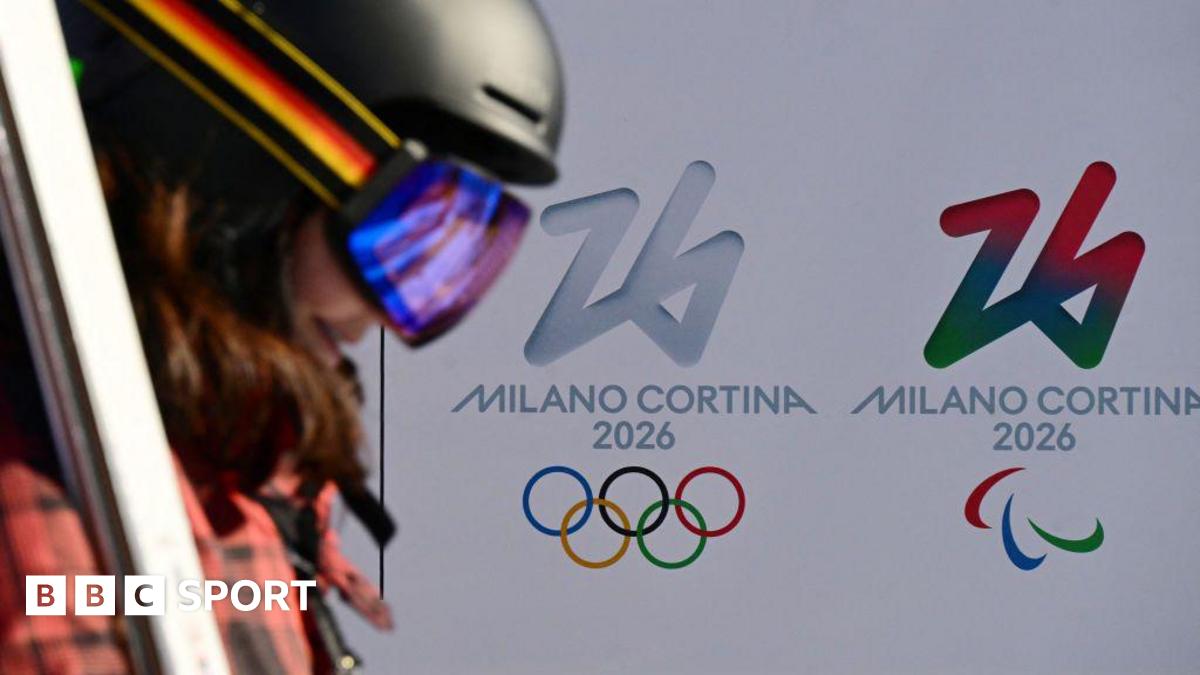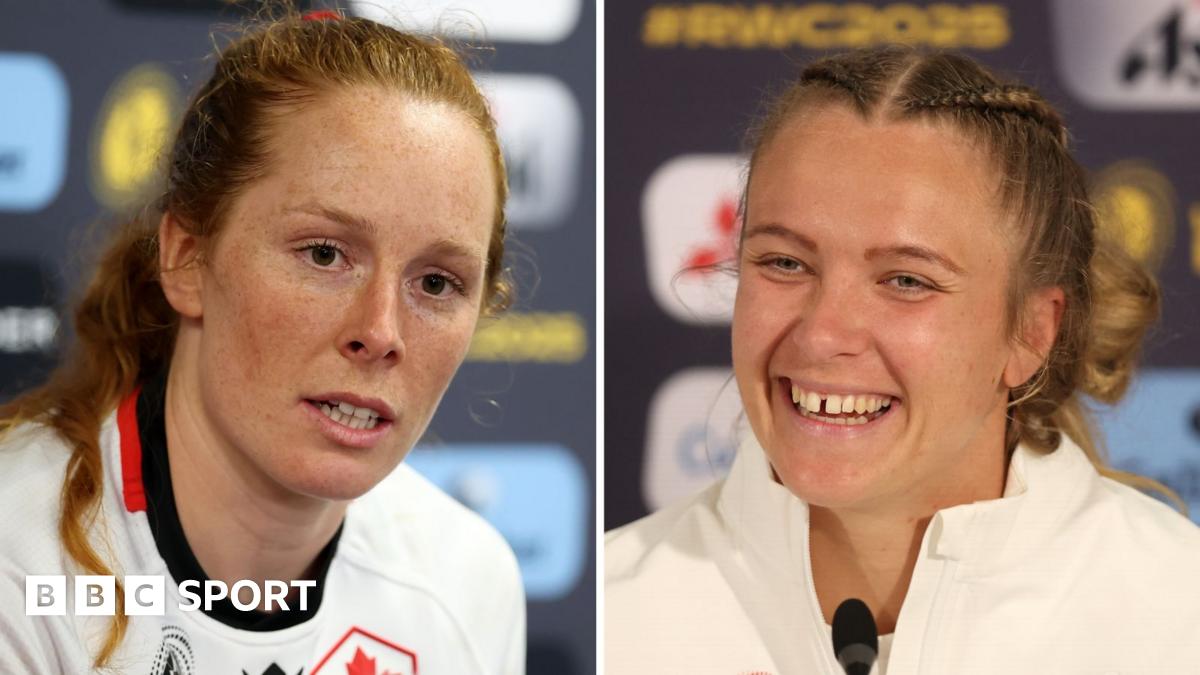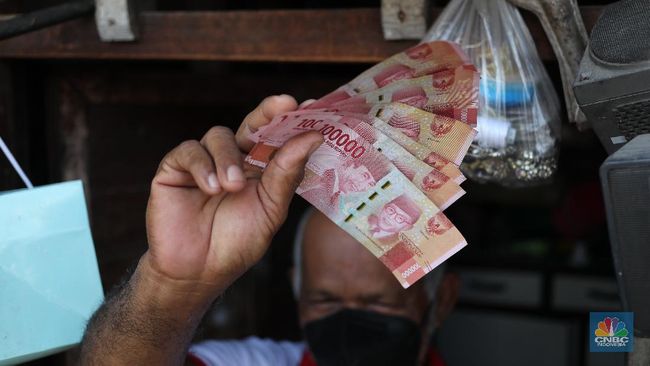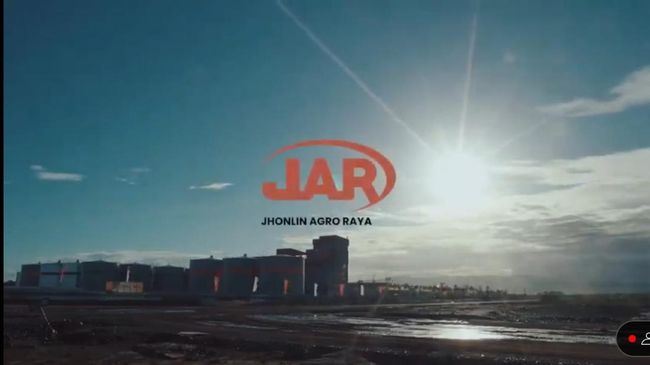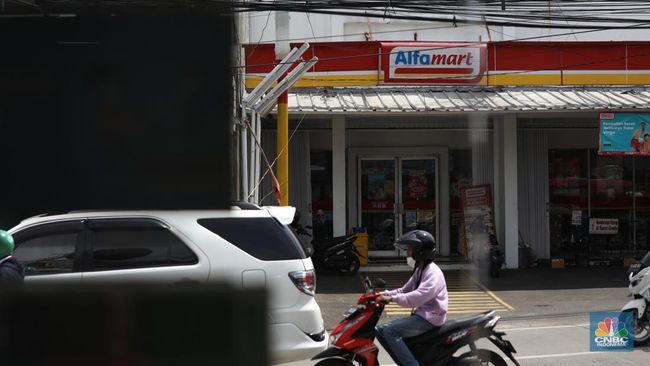
The Football Interview is a new series in which the biggest names in sport and entertainment join host Kelly Somers for bold and in-depth conversations about the nation's favourite sport.
We'll explore mindset and motivation, and talk about defining moments, career highs and personal reflections. The Football Interview brings you the person behind the player.
Interviews will drop on Saturdays across BBC iPlayer, BBC Sounds and the BBC Sport website. This week's interview will be broadcast on BBC One from 23:55 BST on Saturday, 27 September (and after Sportscene in Scotland).
Andoni Iraola did not have the highest profile when he became Bournemouth manager in June 2023, but two years on he is one of the hottest properties in world football.
Iraola started his football education at renowned Basque club Antiguoko alongside Xabi Alonso and Mikel Arteta - now managers of Real Madrid and Arsenal respectively.
In his four seasons as captain of Athletic Club, he reached two Copa del Rey finals, a Europa League final and qualified for the Champions League.
After moving into management, he worked at AEK Larnaca, Mirandes and Rayo Vallecano before moving to England and guiding Bournemouth to their highest Premier League points tally in a season.
The 43-year-old has been linked with Real Madrid, Tottenham and Manchester United in recent months - highlighting how high his stock has risen.
Iraola sat down with Kelly Somers to talk about his childhood, the main influences on his managerial career, and his love of reading.
Kelly Somers: What does football mean to you?
Andoni Iraola: Football was my hobby and it has become now a professional thing. I still love the game, but once you become professional it's not just pure passion, I think it changes a little bit. You see football like an ideal world when you are out of the game and you would love to work there, and when it becomes your everyday work, it's just a workhorse.
Kelly: But you still love it?
Andoni: Yes.
Kelly: What's your earliest memory of playing football?
Andoni: I think probably my best memories are on the beach in San Sebastian. We used to play there with the school team. I don't know if we started five, six or seven years old, and you can play every two weeks [because of the tide]. One weekend you cannot play because there is no beach. And the next one there is the beach, and you can. Every time we would play there. It's lovely memories.
Kelly: Can you remember the first team that you played for?
Andoni: I started with the school team and then the first proper team was a neighbourhood team. Then I moved to Athletic Club when I was 16, so I didn't grow up thinking I was going to become a football player. It came quite late. I was decent, obviously. I was good, but until I was 16, I didn't really realise that this can be a little bit more than just your hobby and maybe I have a chance.
Kelly: Can you remember that moment where you thought, 'yes, I can have a chance'?
Andoni: Yes, I was worried when I had this opportunity... I lived more or less one hour from Bilbao. I had to move and I had to change schools and live alone in the academy. And I was a little worried, thinking maybe I don't have the level to play with these guys. When I arrived there, I could see I could survive... maybe I have a chance. But I think it was quite late, yes.
Andoni Iraola on growing up with Arteta and Alonso and his coaching influences
Kelly: Early on in your career, you crossed paths and played with some pretty famous other managers. Can you tell us about that?
Andoni: Yes. It's incredible because when we were seven, eight, nine, I played with Mikel Arteta, I played with Xabi Alonso. We are more or less the same age, playing sometimes against each other because I was in a school and they were in other schools when we were playing on the beach. Then after we played together in a small club, also in Antiguoko, and now it's amazing that we see each other on the football pitches almost 40 years later.
Kelly: Are there any managers in particular that have had a big impact on your career?
Andoni: Yes, in my case there is especially Ernesto Valverde - a very clear one because he was the one when I moved to Athletic Club at 16. In the under-18s he was the manager, and he was also my manager when I was in the second team at Athletic Club. He was the first one who gave me the chance to have my debut. Even after that, he was my manager when I left the club around 13 years later - he came back after managing other clubs and has been really influential in my career and today still is our manager. Athletic Club is my team and for me he has been probably the key figure if we talk about a manager who has influenced your career.
Kelly: You've mentioned Valverde. If I could push you for three, who else?
Andoni: I've had very good managers. Now a lot of people ask me about Marcelo Bielsa and I feel very lucky to have had him for two seasons. He is someone that watches the game in a different way, and I think it's very useful when you are going to transition to the managerial career. I've never him had as a manager, but I've always liked when we faced Carlo Ancelotti. For someone who has been so brilliant, has won so many things in big clubs, he is very normal when you speak with him, when you face him. It's someone that I always had a good feeling with.
Kelly: You've managed and played in a number of different countries, but which one would you say had the biggest impact on you as a manager?
Andoni: I would say probably the year and a half I spent in America. It is probably not the biggest league - not the best moments of my career because I was probably already on my decline as a player, but it was the moment where I realised I was going to retire and I started thinking about the game in a different way. I also had Patrick Vieira as a coach. He showed me a different style of play because he was coming from the Manchester City academy, where there was more positional play and I was used to a different style of play. It was an experience that has helped me a lot in management. I was lucky to have had that at the end of my playing career.
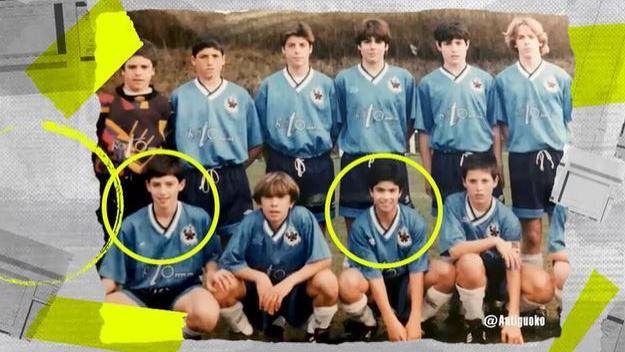 Image source, Antiguoko
Image source, Antiguoko
Andoni Iraola (circled left) and Mikel Arteta (circled right) played together at Antiguoko
Kelly: What was it like growing up? Talk to me about your family.
Andoni: Since I was 10 or 11 years old, I always used to go to school on the train alone to San Sebastian. After school, I took a bus to training, and after I finished training my father came to take me. Both of my parents were working - they have been working always. I am used to moving myself since I was young, which has been good for my independence. When I moved, I was 16 and had to go to a new place. I was living alone which is not the easiest thing. But I think it has been good for me.
Kelly: Did you have any brothers or sisters?
Andoni: No.
Kelly: Who did you play football with growing up?
Andoni: In Spain, when you have a school, you have your morning, you have lunch then you have two hours free. Some people go home, and then they come for the afternoon and evening classes, so it was two halves of the day. In between I used to play football all the time. I couldn't go back home so I stayed there playing football.
Kelly: If you hadn't been a professional footballer or manager, what would you have done?
Andoni: I started two careers. I haven't finished any! I started engineering - too ambitious because I was already playing football. I did more than half of the career but I didn't finish it.
Kelly: How do you escape football?
Andoni: For me, it is quite easy. I have my wife and two kids and they are not much into football. Once I leave the work environment I go home and sometimes we don't speak anything about football. It's very good for me. When I have a day off my wife puts lots of plans in place!
Kelly: Your family have travelled around with you. Is it important to have them with you?
Andoni: My family is very important. They are sacrificing a lot. I am going from country to country to the best clubs I have the opportunity to go, and they have to come with me. I am very clear I couldn't do this without them. If they tell me one day 'I want to go back home', I am leaving. We will go back home. I know there will be a moment in my career when I will have to not be the protagonist, when my kids are older and I won't be the boss any more. I will be happy and we will go back home and I will be the supporting team behind. I know this moment will arrive.
Kelly: If your wife didn't plan anything for your day off, what would you do for yourself?
Andoni: I live in a place for nature and walks - Bournemouth is one of the best places in the country.
Kelly: I read you are big into reading. Is that a way you escape?
Andoni: Yes. For me, reading is a big help. You forget a little bit about everything else happening around you. It's something that has helped me from the mental side. I use reading and I use the bike. They are the two ways I forget about the problems you always have when you are a manager.
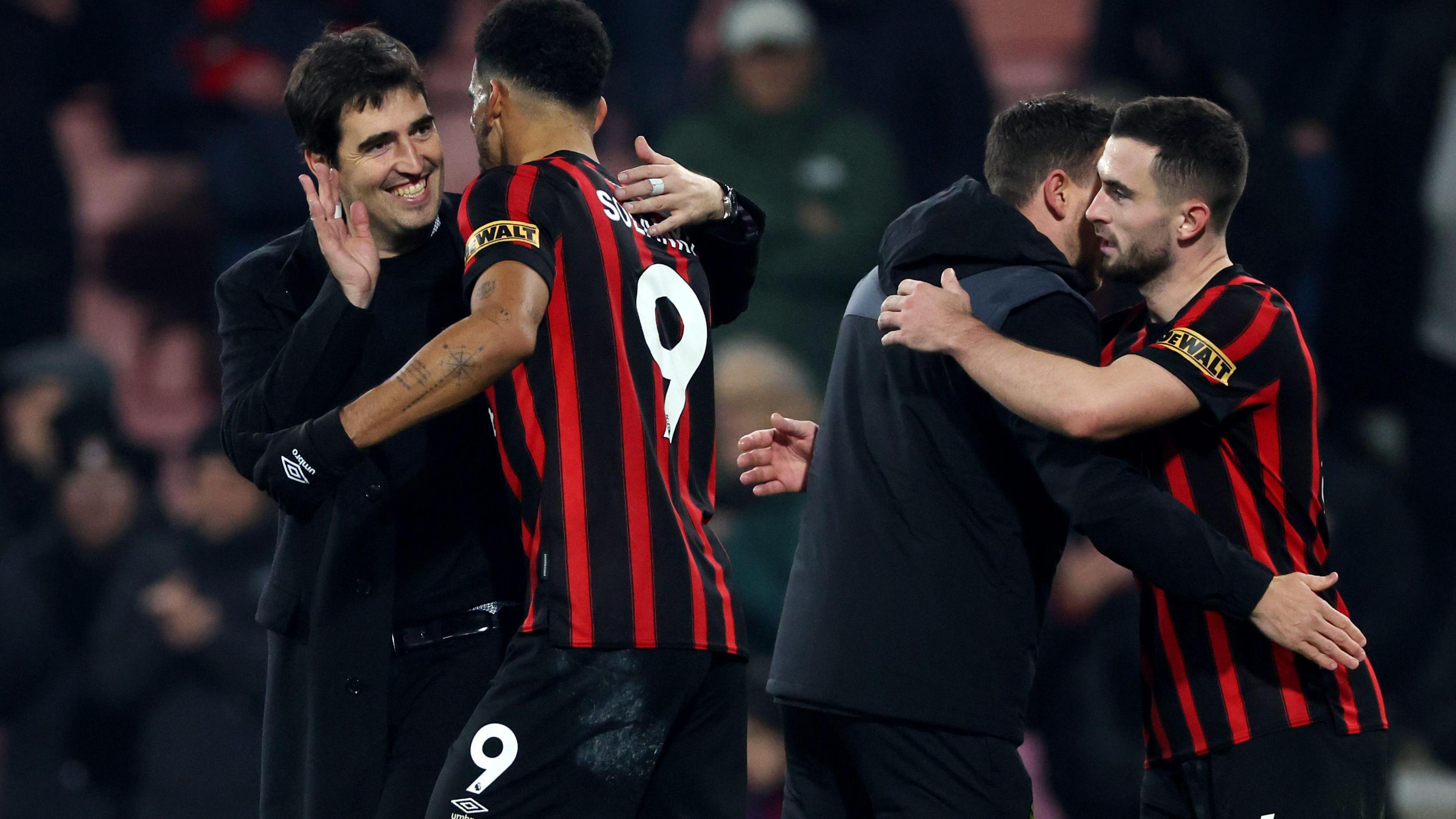 Image source, Getty Images
Image source, Getty Images
Bournemouth finished ninth in the Premier League under Iraola in 2024-25 - their highest top-flight finish
Kelly: What are you most proud of?
Andoni: Probably about the good relationship I have right now with all the clubs I have been at. As a player, as a manager, if I go back to every club it would be a lovely moment to see good people. I have been lucky. The most important thing when I come to a new club is this. When I leave, I hope everyone has good things to say about me. When I come back 10 years later, I still have relationships with people inside the clubs. This has happened in all the clubs I have been and I hope it continues.
Kelly: You want to be known as a good manager, but a good person first?
Andoni: Yes, you are not going to be successful every time. Even in places that it's not going to work, I hope I leave with good relationships.
Kelly: Tell me one thing about yourself that will surprise me.
Andoni: This is the most difficult one. I do quite normal things. People get surprised with how I go on holiday, for example. Every time I go on holiday, we rent a car, we go in the city - sometimes we don't know which hotel we will be staying in. We go day to day, with my wife and the kids. I enjoy visiting countries like this, not with a fixed plan, a little more open.
Kelly: So you like living a normal life?
Andoni: Very, very normal.
Kelly: If you could only achieve one more thing in your career, what would it be?
Andoni: Football-wise?
Kelly: Whatever... go where you want with it.
Andoni: I wouldn't go football, I would go to my personal life. Especially when you are a father, your focus is more on your kids. I would love that my kids have a good life. They have been following me for some years and I hope I can give them a good life, or at least protect them for life as good as I can. That would be my biggest desire.

 2 hours ago
4
2 hours ago
4


